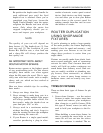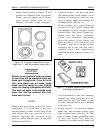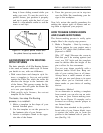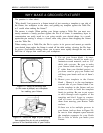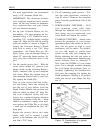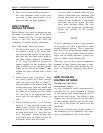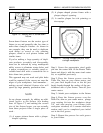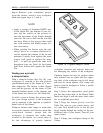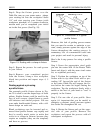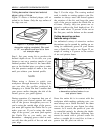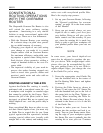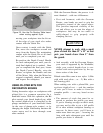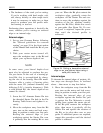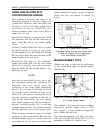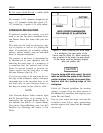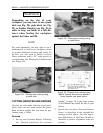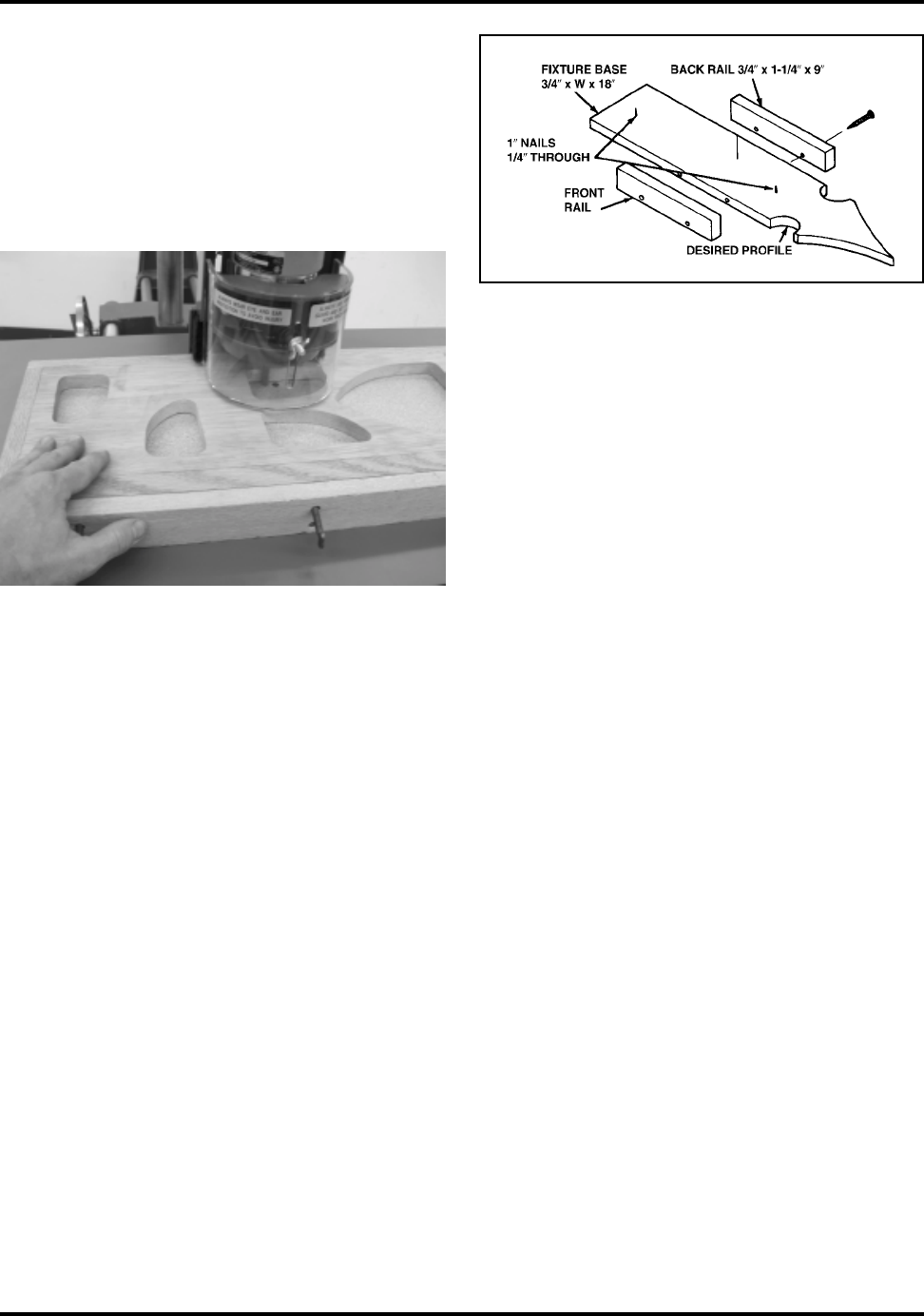
555970 MARK V – MOUNTED OVERARM PIN ROUTER
28
Step 4: Drop the fixture groove over the
Table Pin, turn on your router motor, plunge
your rotating bit into the workpiece about
1/4" and start moving your fixture (with
workpiece attached) in a counter-clockwise
motion until you’ve completed your initial
cut in the first groove (See Fig. 19).
Step 5: Repeat the process for each groove
in your fixture.
Step 6: Remove your completed project
from the fixture, clamp a new workpiece
blank into position and repeat steps 4, 5
and 6.
Routing against a pin using
a profile fixture
Our example profile fixture shown in Fig-
ure 20 is used to cut the shaped tops of fence
pickets. Similar fixtures could be used for the
tops of wall sconces, shaped fence or porch
rail balusters and similar projects. You can
even make double-ended fixtures, with a dif-
ferent design on each end.
Blank workpieces can be inserted and re-
moved from profile fixtures very rapidly and
they’re usually much easier to make that
screw-in or clamp-in fixtures because they
require no template (they are the template)
and have no grooves.
However, this lack of guiding grooves means
that you must be certain to maintain a con-
stant, steady pressure against the edge of the
fixture throughout the routing process. A
momentary loss of concentration could ruin
your project and result in personal injury.
Here’s the 4-step process for using a profile
fixture:
Step 1: Screw the appropriate sized guide
pin into the center hole of the Router Table
Insert and align it with the same sized router
bit, as explained previously.
Step 2: Position the workpiece on top of the
fixture with its tip either flush with or pro-
truding 1/8" beyond the end of the fixture
so the router Guide Pin will engage the fix-
ture before the router bit begins cutting the
workpiece. Tap the workpiece firmly with a
mallet or the heel of your hand to “seat” it
properly in the fixture.
Step 3: Cut one side of your profile. Once
again, it’s important that you be careful to
maintain a constant, steady pressure against
the Guide Pin throughout the cut.
Step 4: Rotate the fixture and cut the oppo-
site side of your profile. Remove the
workpiece and repeat the process with all
subsequent workpieces.
Figure 19. Routing with a clamp-in fixture.
Figure 20. Construction of a typical
profile fixture.



